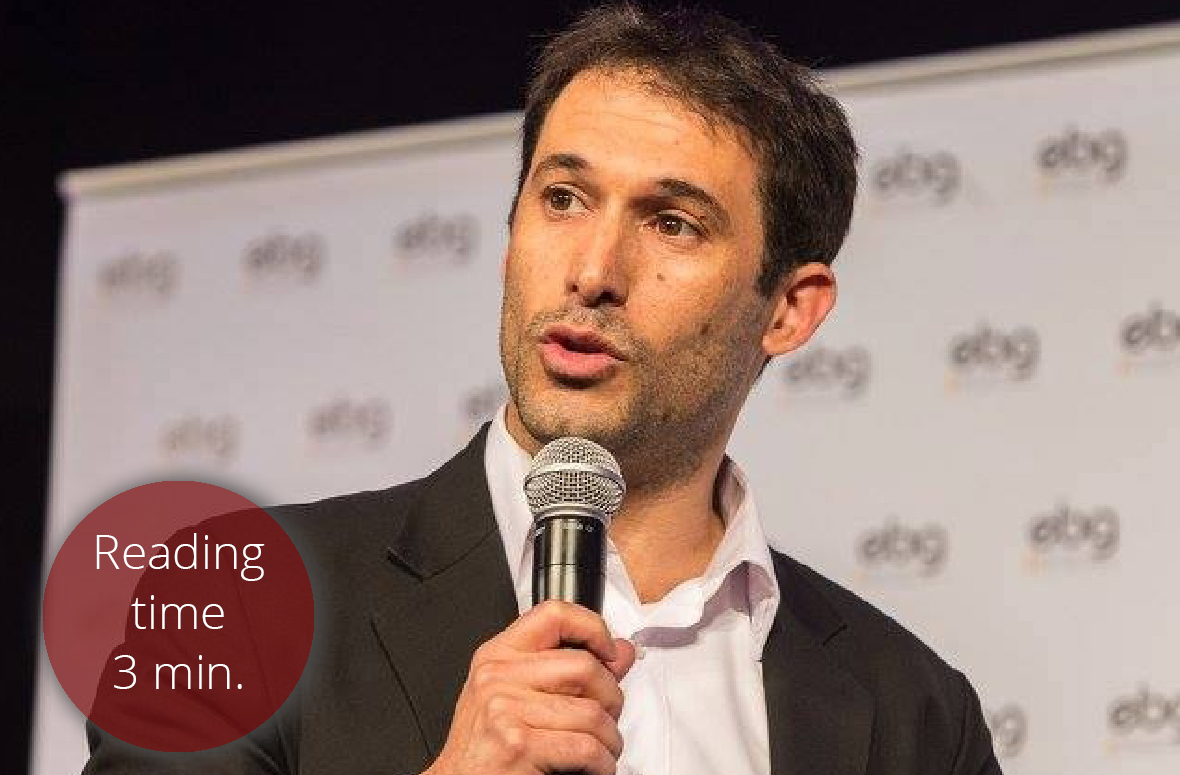Building a Tech Business as a Non-Tech Founder: My Advice
19.02.2023

I can’t really write a line of code, so would class myself a ‘non-technical’ founder, although I have a deep passion for technology.
Over the last few years, it’s been great to see opportunities for non-technical founders like myself increase with the rise of no-code tools, technical partnerships and development agencies.
Reality is, nearly every business on earth could (and should) have technology behind their offering. It can increase efficiency massively, can allow founders to take themselves out of the day-to-day running of the business, could increase the likelihood of it being venture-backable, and could put IP behind the business.
So, I thought I’d share my step-by-step on how I (a non-technical founder) built one tech business to acquisition (>8m MAU), and another, Connectd to >$2.75m ARR and growing.
To all non-tech founders out there, it’s possible!
1) I networked with technical experts and found a technical partner who demonstrated the knowledge and experience I needed.
Some non-tech founders choose to build their early product with development agencies, but I personally prefer working with an individual.
This way you can strike up a good deal, work closely with them so they can see your vision more clearly, and you can work with them in a way that suits your style. With development agencies, they tend to have their own business model and way of working which can make it tougher to communicate and collaborate.
Equally, you need to fully believe in the person/team you are working with. You are trusting them with your idea, time, and money. This is why I also prefer working with an individual, someone who I can bring into the business vision and truly understand the personality of.
In terms of networking to find the person, I like to go to co-working spaces, networking events, demo days, conferences– anywhere you’d meet startup people. Being introduced by investors works really well too.
In terms of understanding their capabilities, it helps to have technical friends/advisors who can also assess their skills and help you pick the right person. And in the end it comes down to gut feel.
2) We created a quick and dirty MVP to prove the potential for monetisation and start building traction.
The person I find will be a superstar coder who is just an initial technical partner to build out the MVP with. They will not be committing their next 10 years to you, so they don’t need to possess C-Suite qualities (they won’t be your CTO).
With them I create a quick and dirty MVP to prove the potential for monetisation and start building traction, not to create the final product– the technical partner will not be embedded in the business and the MVP will be redesigned at a later date.
Again, trust is key here. To feel more in control, daily standups are really important and being really involved with wireframing makes sure that the product is what you want it to be from a vision perspective.
In the initial stage, you can’t worry about it being anywhere near perfect, it will likely be elements hacked together that won’t scale, but that’s the point of the exercise.
Money-wise, my advice for paying the technical partner is: for a first-time founder you probably only have equity and a promise of future money to play with, but after an exit, cash is less of an issue. The better deal you can find with your initial tech partner the better.
3) We used the MVP as a magnet for bringing on additional advisors and a more technically-minded CTO.
Third step, after the MVP is built, proving traction, and has secured funding, is to bring on additional advisors and a more technically-minded CTO.
This is someone who can handle building the tech, and also has a long-term knowledge about scalable architecture, security engineering etc.
With an MVP, initial metrics (user sign-ups, waiting lists etc.) and VC money, you have something tangible and a vision to sell, and the backing of a VC firm. You as the founder need to sell them the vision of what they could join and do with you.
Again, it is useful to go to networking events, co-working spaces, startup events and ask any technically minded connections or investors to introduce you to some potential candidates.
In terms of the right time to bring on a CTO, for my first business, I brought them on around 30k MAU (pre-monetisation, so free users), and for Connectd, around 250 active subscribers (all paying). Some founders choose to go earlier than this, depending on their experience and need.
4) We rebuilt and fine-tuned the product to bring it more in line with our vision.
Now that a CTO is onboard, the MVP can be rebuilt into a product that represents your initial vision.
The reason for an MVP is simply to prove the viability of your idea with your customer base without spending too much time and money.
Working in short iteration cycles, you as the founder with the company vision and product management skills, and the CTO, will keep adapting the product to suit the customer need.
Continuous customer feedback, quick iteration, and quick launch is the only way to keep the product aligned with your target customer.
Steve Jobs, Brian Chesky, Jack Ma, Reid Hoffman, Evan Thomas Spiegel and Ben Silbermann were all non-tech founders, and are all incredibly successful.
Just because you don’t know how to code, doesn’t mean you can’t build a tech company. Take it from me.
Over the last few years, it’s been great to see opportunities for non-technical founders like myself increase with the rise of no-code tools, technical partnerships and development agencies.
Reality is, nearly every business on earth could (and should) have technology behind their offering. It can increase efficiency massively, can allow founders to take themselves out of the day-to-day running of the business, could increase the likelihood of it being venture-backable, and could put IP behind the business.
So, I thought I’d share my step-by-step on how I (a non-technical founder) built one tech business to acquisition (>8m MAU), and another, Connectd to >$2.75m ARR and growing.
To all non-tech founders out there, it’s possible!
1) I networked with technical experts and found a technical partner who demonstrated the knowledge and experience I needed.
Some non-tech founders choose to build their early product with development agencies, but I personally prefer working with an individual.
This way you can strike up a good deal, work closely with them so they can see your vision more clearly, and you can work with them in a way that suits your style. With development agencies, they tend to have their own business model and way of working which can make it tougher to communicate and collaborate.
Equally, you need to fully believe in the person/team you are working with. You are trusting them with your idea, time, and money. This is why I also prefer working with an individual, someone who I can bring into the business vision and truly understand the personality of.
In terms of networking to find the person, I like to go to co-working spaces, networking events, demo days, conferences– anywhere you’d meet startup people. Being introduced by investors works really well too.
In terms of understanding their capabilities, it helps to have technical friends/advisors who can also assess their skills and help you pick the right person. And in the end it comes down to gut feel.
2) We created a quick and dirty MVP to prove the potential for monetisation and start building traction.
The person I find will be a superstar coder who is just an initial technical partner to build out the MVP with. They will not be committing their next 10 years to you, so they don’t need to possess C-Suite qualities (they won’t be your CTO).
With them I create a quick and dirty MVP to prove the potential for monetisation and start building traction, not to create the final product– the technical partner will not be embedded in the business and the MVP will be redesigned at a later date.
Again, trust is key here. To feel more in control, daily standups are really important and being really involved with wireframing makes sure that the product is what you want it to be from a vision perspective.
In the initial stage, you can’t worry about it being anywhere near perfect, it will likely be elements hacked together that won’t scale, but that’s the point of the exercise.
Money-wise, my advice for paying the technical partner is: for a first-time founder you probably only have equity and a promise of future money to play with, but after an exit, cash is less of an issue. The better deal you can find with your initial tech partner the better.
3) We used the MVP as a magnet for bringing on additional advisors and a more technically-minded CTO.
Third step, after the MVP is built, proving traction, and has secured funding, is to bring on additional advisors and a more technically-minded CTO.
This is someone who can handle building the tech, and also has a long-term knowledge about scalable architecture, security engineering etc.
With an MVP, initial metrics (user sign-ups, waiting lists etc.) and VC money, you have something tangible and a vision to sell, and the backing of a VC firm. You as the founder need to sell them the vision of what they could join and do with you.
Again, it is useful to go to networking events, co-working spaces, startup events and ask any technically minded connections or investors to introduce you to some potential candidates.
In terms of the right time to bring on a CTO, for my first business, I brought them on around 30k MAU (pre-monetisation, so free users), and for Connectd, around 250 active subscribers (all paying). Some founders choose to go earlier than this, depending on their experience and need.
4) We rebuilt and fine-tuned the product to bring it more in line with our vision.
Now that a CTO is onboard, the MVP can be rebuilt into a product that represents your initial vision.
The reason for an MVP is simply to prove the viability of your idea with your customer base without spending too much time and money.
Working in short iteration cycles, you as the founder with the company vision and product management skills, and the CTO, will keep adapting the product to suit the customer need.
Continuous customer feedback, quick iteration, and quick launch is the only way to keep the product aligned with your target customer.
Steve Jobs, Brian Chesky, Jack Ma, Reid Hoffman, Evan Thomas Spiegel and Ben Silbermann were all non-tech founders, and are all incredibly successful.
Just because you don’t know how to code, doesn’t mean you can’t build a tech company. Take it from me.











